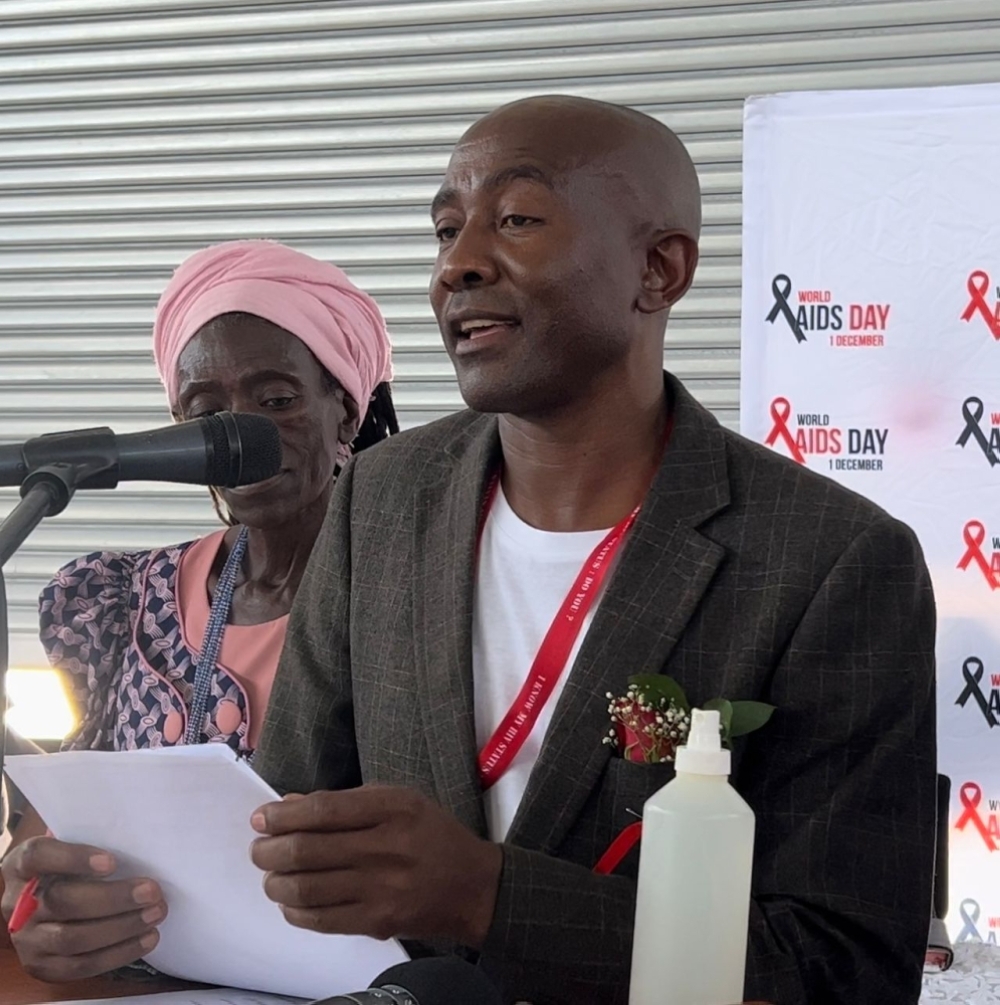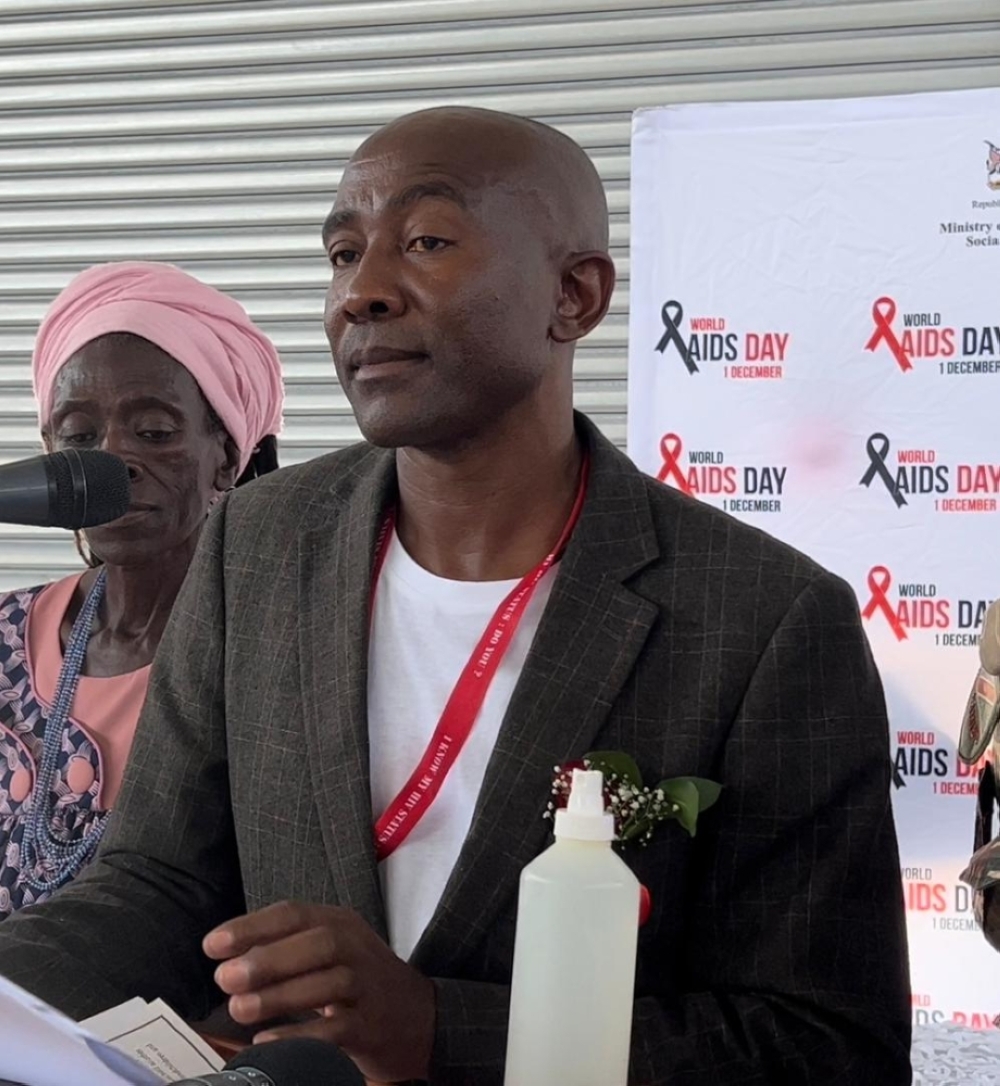Living with HIV for 24 years
Finding out at the tender age of 23 that you are HIV-positive could seem like a death sentence, but this was not the case for activist Jeremia Shetunyenga, who has has been living with the virus for 24 years.
A teacher by profession, Shetunyenga maintains a healthy, productive and positive life, which motivates him to share his story and experiences of living with human immunodeficiency virus (HIV).
"It's been a journey with ups and downs. Antiretroviral [ARV] drugs were not available in Africa at the time. I was very lucky then - I was a young teacher and had a medical aid scheme. We were the first to access ARVs in Namibia through [the Public Service Employee Medical Aid Scheme] when it became available in private pharmacies before they were introduced in government health facilities," he said.
While he speaks openly about his status, Shetunyenga said stigma and discrimination are still rife in Namibia.
"We still have cases of young people accessing their ARVs at different towns due to the fear of being seen in the clinics," he noted.
He added that although the ministry has integrated services at smaller clinics and healthcare centres, big facilities have specialised services for people living with HIV, and some are afraid to access these services.
Rejection
According to him, although pre-exposure prophylaxis (PrEP) is available and accessible in the country and can be used by discordant couples, young women still experience rejection from their intimate partners after disclosing their HIV status.
"As partners, we need to continue providing basic facts about HIV transmission, prevention and treatment," he said.
Shetunyenga encouraged the involvement of persons living with HIV in programming, implementation and evaluation of these programmes.
"We should not be placed in boardrooms as tokens, but should be seen as capable and resourceful contributors to policies, project design and implementations."
Inequalities
The executive director of the Namibia Network of AIDS Service Organisations, Sandie Tjaronda, said inequalities still persist for the most basic services like testing, treatment and distribution of free condoms, and even more so for new technologies, while the funding gap between clinical services is problematic.
"The inequalities which perpetuate the AIDS pandemic are not inevitable. We can address them holistically as a nation," he noted.
Tjaronda made a clarion call to work towards practical actions needed to address inequalities and help end acquired immunodeficiency syndrome [AIDS].
Shetunyenga further applauded the government for all its efforts in fighting AIDS, and noted that if it was not for the state, some HIV-positive persons would not have made it.
A teacher by profession, Shetunyenga maintains a healthy, productive and positive life, which motivates him to share his story and experiences of living with human immunodeficiency virus (HIV).
"It's been a journey with ups and downs. Antiretroviral [ARV] drugs were not available in Africa at the time. I was very lucky then - I was a young teacher and had a medical aid scheme. We were the first to access ARVs in Namibia through [the Public Service Employee Medical Aid Scheme] when it became available in private pharmacies before they were introduced in government health facilities," he said.
While he speaks openly about his status, Shetunyenga said stigma and discrimination are still rife in Namibia.
"We still have cases of young people accessing their ARVs at different towns due to the fear of being seen in the clinics," he noted.
He added that although the ministry has integrated services at smaller clinics and healthcare centres, big facilities have specialised services for people living with HIV, and some are afraid to access these services.
Rejection
According to him, although pre-exposure prophylaxis (PrEP) is available and accessible in the country and can be used by discordant couples, young women still experience rejection from their intimate partners after disclosing their HIV status.
"As partners, we need to continue providing basic facts about HIV transmission, prevention and treatment," he said.
Shetunyenga encouraged the involvement of persons living with HIV in programming, implementation and evaluation of these programmes.
"We should not be placed in boardrooms as tokens, but should be seen as capable and resourceful contributors to policies, project design and implementations."
Inequalities
The executive director of the Namibia Network of AIDS Service Organisations, Sandie Tjaronda, said inequalities still persist for the most basic services like testing, treatment and distribution of free condoms, and even more so for new technologies, while the funding gap between clinical services is problematic.
"The inequalities which perpetuate the AIDS pandemic are not inevitable. We can address them holistically as a nation," he noted.
Tjaronda made a clarion call to work towards practical actions needed to address inequalities and help end acquired immunodeficiency syndrome [AIDS].
Shetunyenga further applauded the government for all its efforts in fighting AIDS, and noted that if it was not for the state, some HIV-positive persons would not have made it.





Comments
Namibian Sun
No comments have been left on this article